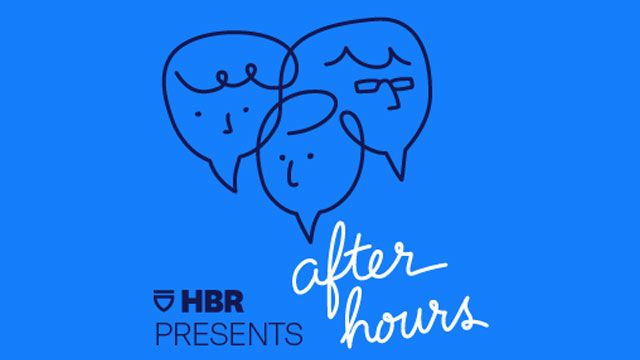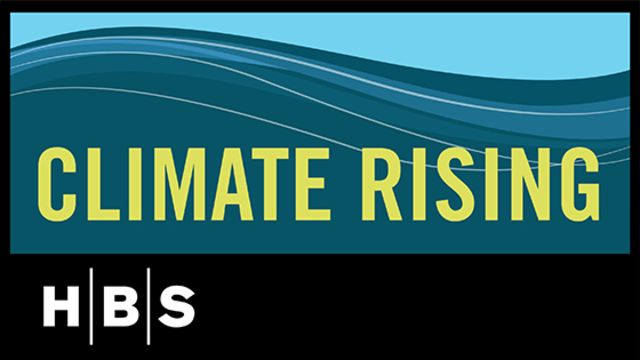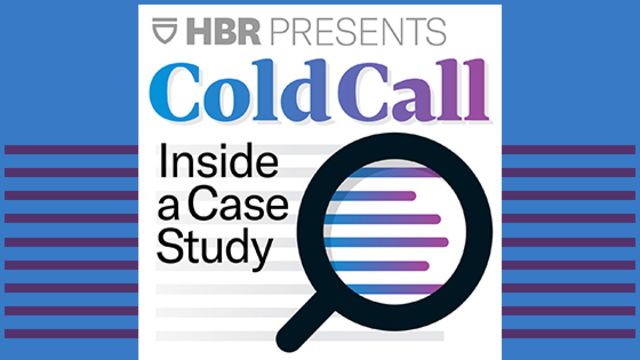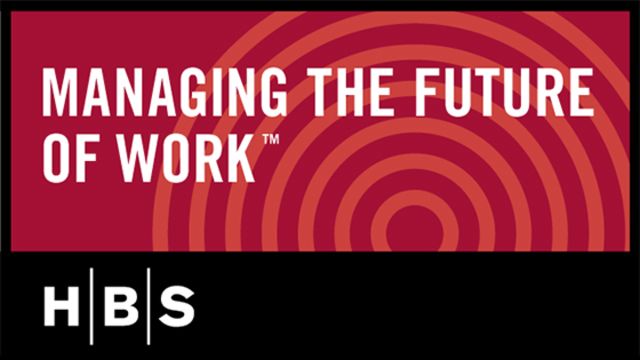Faculty & Research
Then Toffel, who is the Senator John Heinz Professor of Environmental Management, poses a tough question: “What should JUUL do now, given the pressure that it’s under from advocacy groups and regulators?” Don’t panic—this isn’t a real cold call, but rather an episode of HBS’s “Cold Call” podcast. The School is harnessing this fast-growing medium to disseminated faculty research and ideas and to engage many more people with the work and activities of the School.
“Podcasts are approachable. They are easily consumable and highly relatable—they can help listeners understand what makes HBS distinctive and how it’s making a difference in the world,” explains Brian Kenny, HBS’s chief marketing and communications officer and host of “Cold Call.” Two to three times a month, Kenny introduces “Cold Call” listeners to the School’s faculty, highlights new and noteworthy cases, and provides actionable takeaways for business leaders, all in about 25 minutes. Listeners might be CEOs tuning in during their commute or prospective students streaming it during a workout. “We hope everyone—not just businesspeople—will find them interesting,” Kenny says.
The School’s podcasts are available online and on major podcast platforms. Prior to the COVID-19 pandemic, many of the School’s podcasts were produced in the HBS Studios, a multimedia facility on the lower level of Klarman Hall. Opened in 2018, the studios feature state-of-the-art technology for creating podcasts, videos, and webinars. During the pandemic, podcasts are being recorded remotely.
Popular Episodes

Walmart’s Strategy to Beat Amazon; and Millennial Socialism

Climate Change Challenges Facing the Real Estate Industry

Can Khan Academy Scale to Educate Anyone, Anywhere?

Prediction: How AI Will Affect Business, Work, and Life
About half of the School’s current slate of nearly a dozen podcasts are dedicated to the research and other interests of HBS faculty. “Climate Rising,” produced by the School’s Business & Environment Initiative, brings HBS faculty members together with business and policy leaders to discuss what companies are doing—and should be doing—to address climate change.
On “Managing the Future of Work,” Joe Fuller, Professor of Management Practice, and Bill Kerr, the Dimitri V. D'Arbeloff-MBA Class of 1955 Professor of Business Administration, talk with everyone from entrepreneurs to historians to understand the ever-changing workplace. Beginning in April, the podcast started recording frequent COVID-19 dispatches on topics such as the pandemic’s outsized impact on low-income workers and the new normal in the venture capital sector.
“Podcasts are approachable…easily consumable and highly relatable—they can help listeners understand what makes HBS distinctive and how it’s making a difference in the world.”
“The Disruptive Voice” explores the theories of disruptive innovation across industries with academics, researchers, and practitioners who have been inspired and taught by the late Professor Clayton Christensen.
Each week on “After Hours,” Youngme Moon, the Donald K. David Professor of Business Administration, Mihir Desai, the Mizuho Financial Group Professor of Finance, and Felix Oberholzer-Gee, the Andreas Andresen Professor of Business Administration discuss the news of the day and what it means for business. Their conversation is smart and well-informed, but also relaxed and funny—which underlines the value of the podcast medium.
“Podcasts put a human face on the HBS brand. When you hear the real voices of the people at the School, you feel like you’re getting to know them,” Kenny says. Podcasts also have a broad reach. To date, HBS shows have been downloaded more than 5 million times in more than 200 countries.

